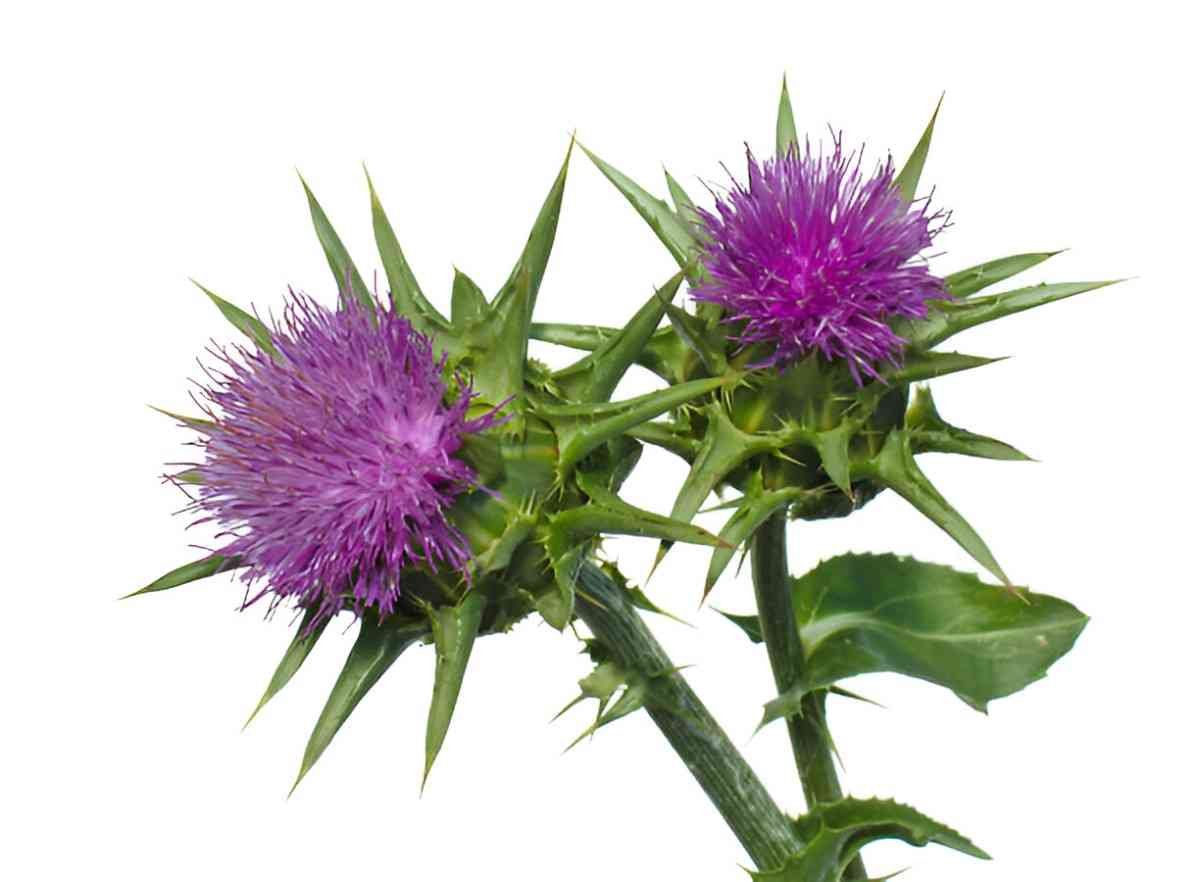Milk thistle, scientifically known as Silybum marianum, is a flowering herb native to the Mediterranean region and is widely used for its purported health benefits, particularly for liver health. While milk thistle is renowned for its potential therapeutic properties, it’s essential to be aware of its possible side effects and precautions. Let’s explore the nutritional values, key health benefits, cautions, and methods of incorporating milk thistle into your diet, along with an overview of its side effects.
Summary Table
| Nutritional Values | Key Health Benefits | Diseases | Cautions | Incorporation |
|---|---|---|---|---|
| – Silymarin | – Liver Support | – Liver Conditions | – Allergic Reactions | – Supplements |
| – Antioxidant Properties | – Digestive Issues | – Tea | ||
| – Anti-inflammatory Effects | – Interactions with Medications | – Cooking | ||
| – Cholesterol Regulation | ||||
| – Blood Sugar Control |
Nutritional Values:
Milk thistle contains a bioactive compound known as silymarin, which is believed to be responsible for many of its health benefits. Silymarin is a powerful antioxidant that helps protect liver cells from damage caused by toxins and oxidative stress.
Key Health Benefits:
- Liver Support: Milk thistle is most well-known for its potential to support liver health. Silymarin may help regenerate liver cells, protect against damage from toxins and free radicals, and support the liver’s detoxification processes.
- Antioxidant Properties: Silymarin acts as an antioxidant, scavenging free radicals and reducing oxidative stress throughout the body. This may benefit overall health and reduce the risk of chronic diseases.
- Anti-inflammatory Effects: Milk thistle has been studied for its anti-inflammatory properties, which may help reduce inflammation in the body and alleviate symptoms of inflammatory conditions.
- Cholesterol Regulation: Some research suggests that milk thistle may help lower cholesterol levels, particularly LDL (“bad”) cholesterol, which could benefit heart health.
- Blood Sugar Control: Preliminary studies have shown that milk thistle may help improve insulin sensitivity and regulate blood sugar levels, making it potentially beneficial for individuals with diabetes or metabolic syndrome.
Curing Specific Diseases:
While milk thistle is often used as a complementary therapy for liver conditions such as hepatitis and cirrhosis, there is limited scientific evidence to support its effectiveness in curing specific diseases. It is essential to consult with a healthcare professional before using milk thistle as a treatment for any medical condition.
Cautions:
Despite its potential benefits, milk thistle may cause side effects and interactions with certain medications:
- Allergic Reactions: Some individuals may experience allergic reactions to milk thistle, including itching, rash, or difficulty breathing.
- Digestive Issues: Mild gastrointestinal symptoms such as nausea, diarrhea, or indigestion may occur in some individuals.
- Interactions with Medications: Milk thistle may interact with certain medications, including blood thinners, cholesterol-lowering drugs, and antipsychotic medications. It’s essential to consult with a healthcare provider before using milk thistle, especially if you are taking medications or have a pre-existing medical condition.
Incorporating Milk Thistle Into Your Diet:
Milk thistle can be incorporated into your diet in various forms, including:
- Supplements: Milk thistle supplements are available in capsule, tablet, or liquid extract form. Follow dosage instructions provided by the manufacturer.
- Tea: Brew milk thistle tea by steeping dried milk thistle leaves or seeds in hot water for a soothing beverage.
- Cooking: Ground milk thistle seeds can be added to smoothies, soups, or baked goods for a nutritional boost.
Milk thistle offers potential benefits for liver health, antioxidant protection, and other aspects of well-being. However, it’s essential to be aware of its possible side effects and interactions with medications. By understanding the risks and benefits of milk thistle and incorporating it into your diet cautiously, you can make informed decisions about its use for supporting your health.





